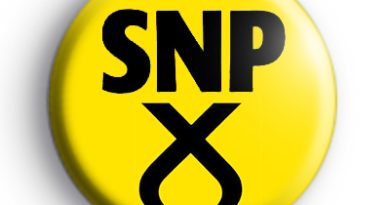Brandon Lewis – 2021 Statement on Northern Ireland
The statement made by Brandon Lewis, the Secretary of State for Northern Ireland, in the House of Commons on 13 April 2021.
With permission, Mr Deputy Speaker, I would like to make a statement to update the House on the recent disorder in Northern Ireland.
The main areas of unrest have been specific parts of Belfast, Newtownabbey, Carrickfergus, Ballymena, Cookstown, Coleraine and Londonderry. The 7 and 8 April saw an escalation in the violence at an interface area, commonly referred to as a peace wall, in west Belfast, with missiles being thrown by large numbers of mainly young people over interface gates, and police coming under attack. As a result of the unrest, a total of 88 police officers have been injured, 18 arrests have been made and 15 individuals have been charged. My thoughts and, I am sure, the best wishes of everybody in this House are with those police officers.
On Friday 9 April, the incidents of public disorder were significantly reduced compared with previous evenings. There was, however, localised disorder in north Belfast. The remainder of the weekend and since has been much calmer, with only a few isolated incidents of disorder.
The violence witnessed last week was totally unacceptable. Attacks on police officers are utterly reprehensible. Those engaged in this destruction and disorder do not represent the people of Northern Ireland. It is tragic and deeply concerning that young people have been engaged in, and encouraged into, this violence, and, as a result, will now end up with criminal records.
It can be easy to look for a simplistic explanation for the recent disorder, but it is clear that the factors behind it are, in fact, complex and multi-faceted. People are frustrated after a year in which coronavirus has challenged all of us, and I do recognise how frustrating it has been, especially for young people in Northern Ireland facing the uncertainty around the lifting of lockdown restrictions without having the clear road map in Northern Ireland. There is also a perception that the rules and restrictions have not been enforced equally in Northern Ireland, and we all know that there are strongly held political views within and between communities that can be in tension with each other. I recognise that there are concerns about the implications of the Northern Ireland protocol—concerns that overlap with wider questions about national identity and political allegiance—and this comes at a time of economic uncertainty caused by the pandemic.
Northern Ireland has made huge strides over the past two decades, but it is a post-conflict society and there do remain elements of fragility. Some sections of the community feel that their concerns are not understood. The reconciliation, equality and mutual understanding between the communities and traditions envisioned in the Belfast/ Good Friday agreement are not recognised or experienced by all. There is still work to do.
The Belfast/Good Friday agreement, which was signed 23 years ago, highlighted the importance of progress in areas of social development, such as integrated education. These will be a vital part of Northern Ireland’s future, enabling even more young people to grow up in the reality of a shared society and able to effect positive change in their communities. The answer to all these issues and any others lies in dialogue, engagement and the democratic process, not through violence or disorder. It is incumbent on all of us engaged in political discourse to support Northern Ireland in leaving its divisive past behind and continuing instead to look ahead to all the opportunities of the future.
Policing and justice matters are devolved under strand 1 issues under the Belfast/ Good Friday agreement. Despite this being a devolved matter, though, the Government have an important role to play in supporting the Executive to ensure that calm prevails and in offering the Police Service of Northern Ireland and all those committed to dialogue and democracy our fullest possible support. I have continued to meet with Northern Ireland’s party leaders and the Police Service of Northern Ireland over recent days to discuss the unrest. Our collective priority is to work together to ensure public safety.
I very much welcome the statement from the Northern Ireland Executive on 8 April that set out a common position from all Executive parties against the violence and declares their support for law and order and policing. I want to express my gratitude to them for their efforts and to the PSNI for continuing to work to keep people safe.
I also welcome recent statements from many across the community and beyond condemning the violence and appealing for calm. The Government respect the right to protest, but it must be done in a peaceful manner that fully respects the rule of law. On 10 April, we marked 23 years since the signing of the Belfast/Good Friday agreement, an achievement of which the people of Northern Ireland are justifiably proud and on which we can continue, and must continue, to work closely with the Irish Government as co-guarantors of that agreement. In that time there has been a transformative change in Northern Ireland. Peace has brought stability and opportunity. It has enabled Northern Ireland to develop into the vibrant, exciting place that it is today.
The Government are resolutely committed to peace and prosperity in Northern Ireland. We have invested significantly in a wide range of programmes and initiatives to that end. The Belfast/Good Friday agreement provided the foundation for peace and a framework for prosperity and we are committed to it, as, I think, everyone in this House is. All of us across this House have a duty to support the people of Northern Ireland in shaping a peaceful and prosperous society for the future—a future that they can shape.I have seen at first hand an inclusive, prosperous and hopeful society that continues to build on that hard-won peace.
We must all work together to resolve the tensions that are currently being faced. I know from my ongoing engagement with stakeholders, including the Irish Government, that that is a shared view. The only way to resolve differences is through dialogue, and in that regard we must all lead by example. I commend this statement to the House.


